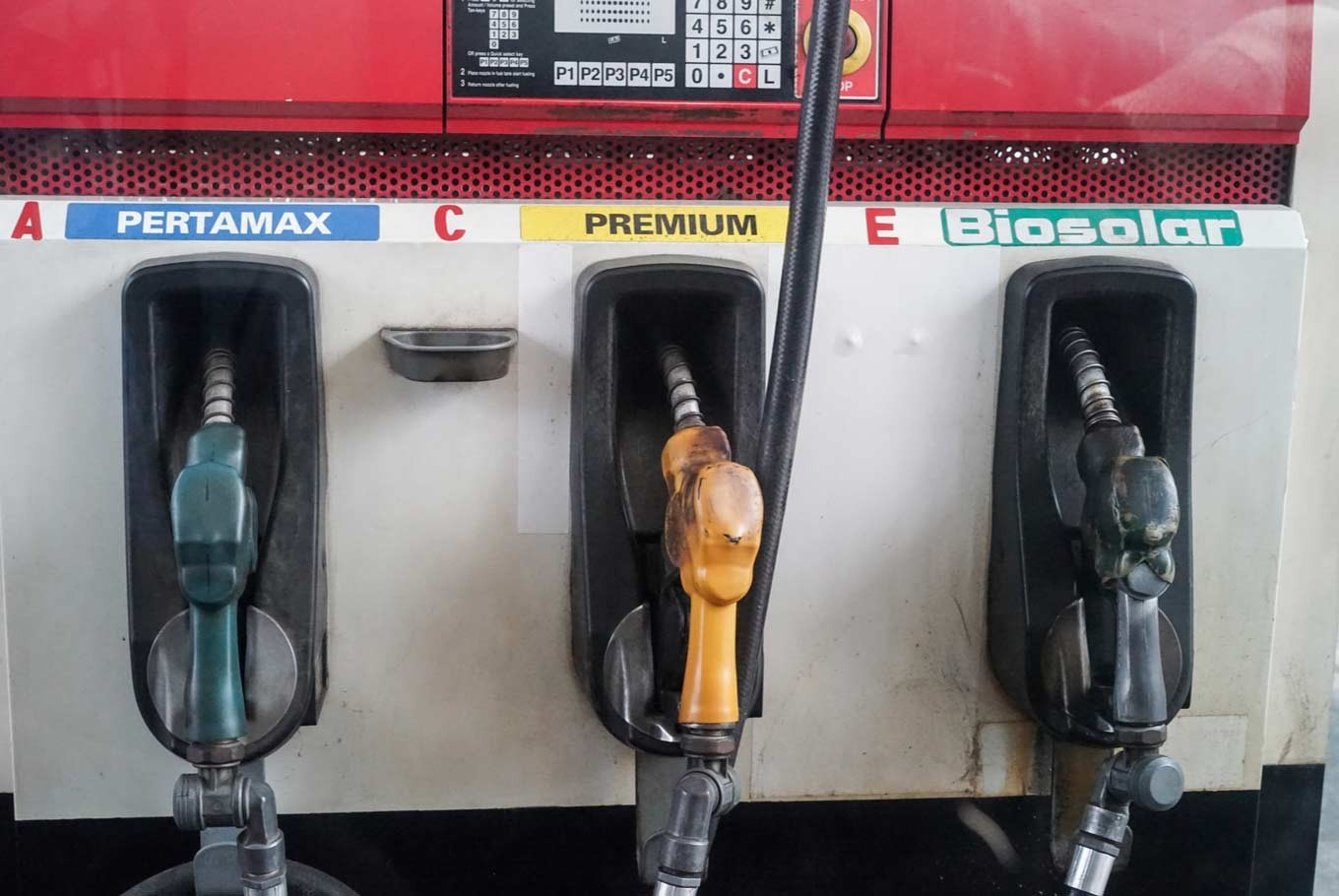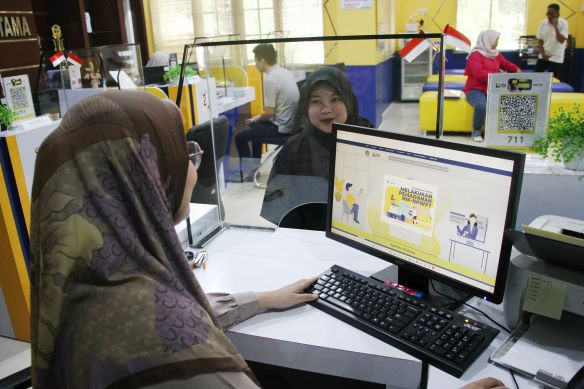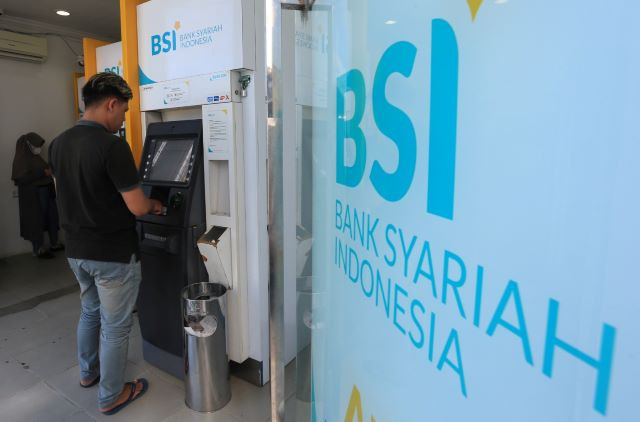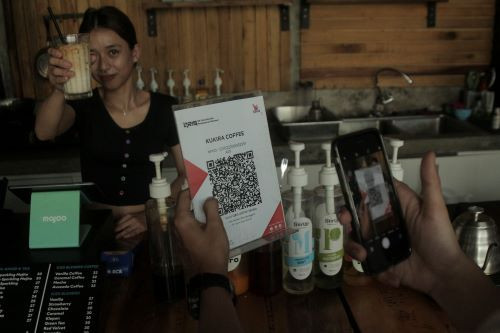EDITORIAL: Held hostage by rising oil prices
Global oil prices have hovered above US$60 per barrel since early this year, higher than the $48 assumed for the 2018 state budget.
Change Size
 Typers of fuel available at Pertamina gas station. (Shutterstock.com/Sallehudin Ahmad)
Typers of fuel available at Pertamina gas station. (Shutterstock.com/Sallehudin Ahmad)
W
hen it comes to fixing fuel prices, the Jokowi government, like all previous administrations, is vulnerable to the political demand for populist measures, even at the expense of the long-term foundations of the economy, notably the national energy strategy.
President Joko “Jokowi” Widodo won praise both at home and overseas when he slashed fuel subsidies by one third only one month after his coming to power in October 2014. But his policy move, which looked dramatically bold at that time, turned out to have been prompted by then historically low oil prices, rather than his truly political courage to stop the huge wasteful spending on fuel subsidies.
As global oil prices have hovered above US$60 per barrel since early this year, higher than the $48 assumed for the 2018 state budget, he has simply resorted to increasing fuel subsidies in a bid to control inflationary pressures, which usually hit low fixed-income people hardest.
The government announced last month that it would maintain the prices of subsidized fuels (low octane gasoline and automotive diesel) until early next year to help the poor, despite the steady oil-price hike in the international market, as the government still has fiscal space to increase the budget deficit.
But the government announced on Monday that no fuel distributors, including foreign oil firms, would be allowed to float their fuel prices according to international market quotations. All fuels, except for low-octane gasoline and diesel, which are still subsidized, will be subject to government-fixed maximum and minimum prices.
True, increasing fuel prices could be a political suicide for the government in view of the legislative and presidential elections next year and would raise inflationary pressure, causing instability and a depreciation in the rupiah.
It is not clear yet how the mechanism of maximum and minimum prices will be formulated, but we expect it will still allow oil companies to adjust their prices to their real economic costs through a managed price floating system, similar to the one that was introduced for some time in 2015.
The managed price-floating system is still tied to fixed maximum prices, whereby the government can intervene in retail fuel prices again if prices go above the maximum. Under this regime the government still periodically sets the minimum and maximum prices to allow reasonable profits for the distributors.
As the range of prices set for the managed floating is designed to be close to the real cost of the fuels, the policy should also still be effective at least in preventing subsidies from ballooning out of control.
Moreover, such a managed price-floating system will spare the government the unnecessary political bickering with the House of Representatives every time oil prices rise sharply, and prevent the government from being hostage to the wildly volatile international oil market.
At the end of the day, however, no matter how the minimum-maximum price mechanism is worked out, it should still set out the right direction for the government’s long-term energy policy.









